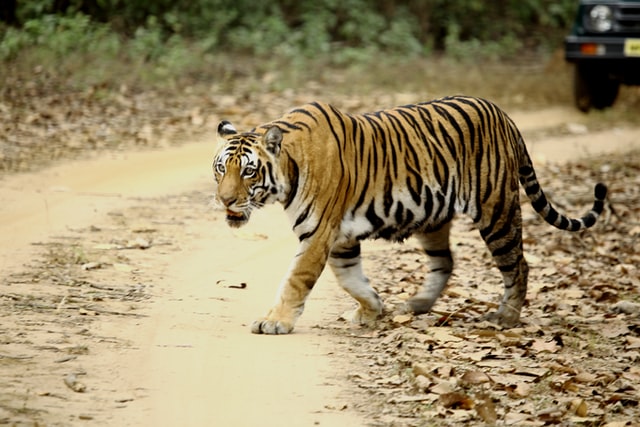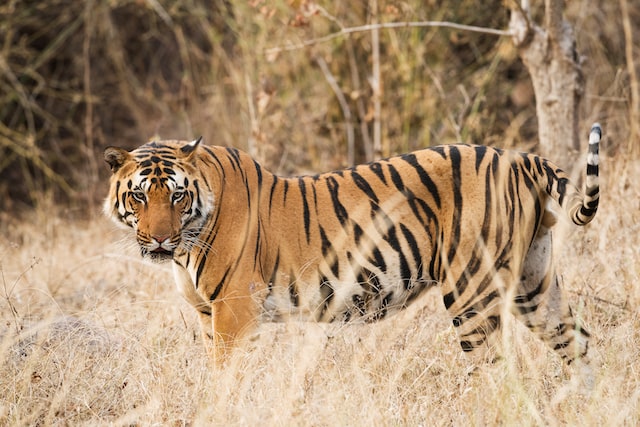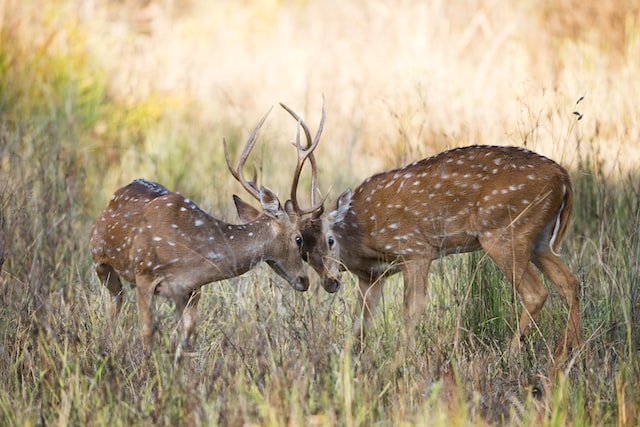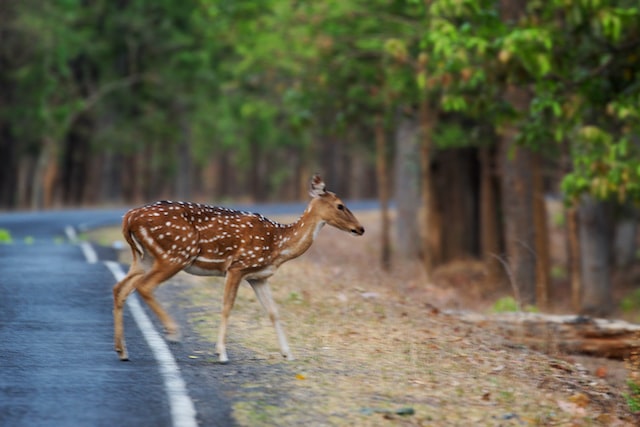Located in the Satpura range of Madhya Pradesh, Kanha National park is the foremost destination for Tiger lovers in India. Spread over an area of about 940 square kilometers, this protected forest is home to around 130 Tigers (as identified in 2022).
Kanha National Park is part of the larger Kanha Tiger reserve which is divided into three zones –
- the core (Kanha National Park), having an area of around 940 sq km,
- the buffer, having an area of around 1,100 sq km, and
- the microsatellite core (Phen Wildlife Sanctuary), having an area of 110 sq km.
Kanha National Park is one of the largest National Parks in India
(Also read: Top 10 largest national parks in India)

Kanha was established as a National Park in 1955. Before 1955, the area was a protected sanctuary. The area was inhabited by indigenous tribes namely the ‘Gonds’.
| Area | around 940 sq km |
| State | Madhya Pradesh |
| Famous for | Tigers and Barasinghas |
| Established | 1955 |
| Districts | Mandla and Balaghat |
What is the best time to visit Kanha National Park?
Kanha National Park generally remains open to visitors from October 15th to June 30th. The best time to visit for families is during the winter months. However, during the summer months, Tiger sightings are the highest.

Kanha National Park was named the “best tourism-friendly national park in India” in 2000 by the Department of Tourism.
Wildlife in Kanha National Park, Madhya Pradesh

Apart from Tigers, other large animals in the National Park are Barasingha, Hyena, Leopard, Sloth Bear, Wild Boar, the mighty Gaur, and many more.
How many Tigers are there in Kanha National Park?
In 2022, around 130 tigers were identified utilizing the Kanha Tiger reserve of which Kanha National Park is part of.
What is Kanha National Park famous for?
Kanha National Park is famous for its Tigers and Barasinghas (Swamp deers).
How to reach Kanha National Park?
The closest large city to the National Park is Jabalpur. Jabalpur is well connected to other parts of India by rail, road, and air. Nagpur is 250 kilometers from Kanha.
